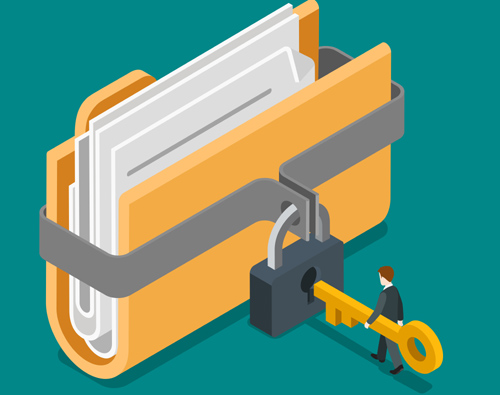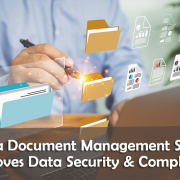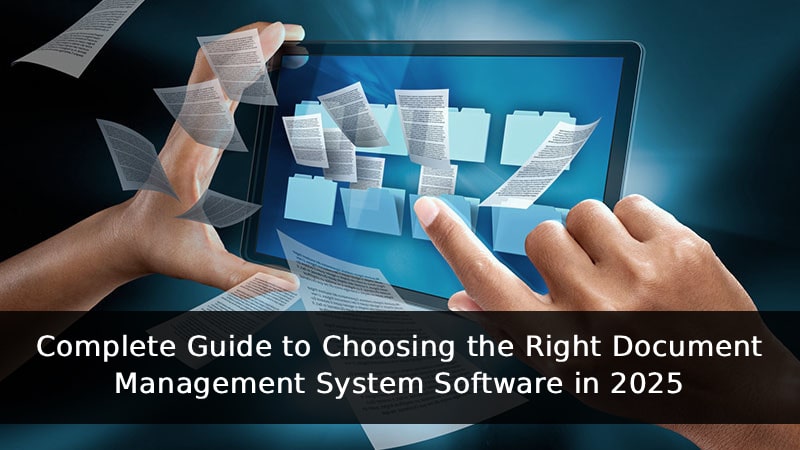Havteq provide Best Document Management System Software
Before embarking on the journey to select a Document Management System Software (DMS), it is crucial to have a clear understanding of your business needs. This foundational step involves a thorough analysis of your current document handling processes, the types of documents you manage, and the specific challenges you face. For instance, if your organization deals with a high volume of contracts, invoices, or sensitive client information, your DMS must cater to these requirements.
Identifying pain points such as inefficiencies in document retrieval, excessive paper usage, or compliance issues can guide you in selecting a system that addresses these challenges effectively. Moreover, understanding your business needs also entails recognizing the goals you aim to achieve with a DMS.
Are you looking to enhance collaboration among team members, streamline workflows, or improve compliance with industry regulations?
Each of these objectives will influence the features and functionalities you prioritize in a DMS. Engaging stakeholders from various departments can provide valuable insights into their specific needs and expectations, ensuring that the chosen system aligns with the overall strategic vision of the organization. This collaborative approach not only fosters buy-in from users but also helps in creating a comprehensive list of requirements that will serve as a benchmark during the evaluation process. Check out Havteq’s Document Management System Software.
Havteq’s digital document management system helps businesses organize all files, whether they are paper documents or digital. It supports all file types and document types, streamlining business processes for project managers. Discover the best document management software to boost efficiency with a smart document management solution.
Key Takeaways
- Understanding your business needs is crucial before selecting a Document Management System Software.
- Evaluate Document Management System Software features to ensure they align with your business requirements.
- Consider integration with existing software to streamline workflows and improve efficiency.
- Assess security and compliance requirements to protect sensitive business information.
- Determine scalability and flexibility to accommodate future business growth and changes.

Evaluating Document Management System Software Features
Core Functionalities
A robust Document Management System Software should provide essential functionalities such as document capture, indexing, and retrieval capabilities.
For instance, optical character recognition (OCR) technology can convert scanned documents into searchable text, significantly enhancing retrieval efficiency.
Collaboration and Version Control
Version control is a critical feature that allows users to track changes made to documents over time, ensuring that everyone is working with the most up-to-date information. Collaboration tools are another vital aspect to consider when evaluating DMS features. Features such as real-time editing, commenting, and task assignment can facilitate teamwork and improve productivity.
Automation and Workflow Efficiency
Automation capabilities can streamline repetitive tasks such as document routing and approval processes. For instance, a DMS that integrates workflow automation can reduce the time spent on manual tasks, allowing employees to focus on more strategic initiatives.
Considering Integration with Existing Software

Businesses often rely on a suite of software applications to manage various aspects of their operations. Therefore, when selecting a Document Management System Software, it is imperative to consider how well it integrates with your existing software ecosystem. A DMS that seamlessly connects with tools such as Customer Relationship Management (CRM) systems, Enterprise Resource Planning (ERP) software, and email platforms can significantly enhance productivity by enabling data sharing and reducing the need for duplicate data entry.
For example, if your organization uses Salesforce as its CRM platform, choosing a DMS that offers direct integration with Salesforce can streamline document management processes related to customer interactions. This integration allows sales teams to access relevant documents directly within the CRM interface, improving efficiency and ensuring that critical information is readily available. Additionally, consider whether the DMS supports APIs or has pre-built connectors for popular applications.
This flexibility can facilitate future integrations as your software landscape evolves, ensuring that your DMS remains relevant and effective over time.
Assessing Security and Compliance Requirements
Security and compliance are paramount considerations when selecting a Document Management System Software. Organizations handle sensitive information daily, and any breach or non-compliance can have severe repercussions. Therefore, it is essential to assess the security features offered by potential DMS solutions.
Look for systems that provide robust encryption protocols for data at rest and in transit, ensuring that unauthorized access is prevented. Additionally, user authentication mechanisms such as multi-factor authentication (MFA) can add an extra layer of security by verifying user identities before granting access. Compliance with industry regulations is another critical factor to consider.
Depending on your sector—be it healthcare, finance, or legal—specific regulations may dictate how documents must be stored and managed. For instance, healthcare organizations must comply with HIPAA regulations regarding patient information privacy. A suitable DMS should offer features that facilitate compliance, such as audit trails that track document access and modifications. Havteq’s Document management system software provide best security and compliance.
By ensuring that your chosen system adheres to relevant compliance standards, you can mitigate risks associated with regulatory violations and protect your organization’s reputation.
Determining Scalability and Flexibility
As businesses grow and evolve, their document management needs may change significantly over time. Therefore, it is essential to choose a Document Management System Software that offers scalability and flexibility. A scalable DMS can accommodate increasing volumes of documents without compromising performance or requiring significant additional investment.
This capability is particularly important for organizations anticipating rapid growth or those operating in dynamic industries where document management needs may fluctuate. Flexibility in terms of deployment options is also crucial. Some organizations may prefer an on-premises solution for greater control over their data, while others may opt for cloud-based systems for ease of access and reduced IT overhead.
A hybrid approach may also be suitable for businesses looking to balance both options. When evaluating potential DMS solutions, consider how easily they can adapt to changing business requirements and whether they offer customizable features that allow you to tailor the system to your specific workflows.

Comparing Pricing and Return on Investment
Pricing is often a significant factor in the decision-making process when selecting a Document Management System Software. However, it is essential to look beyond the initial costs and consider the overall return on investment (ROI) associated with implementing a DMS. While some systems may have lower upfront costs, they may lack essential features or require extensive customization that could lead to higher long-term expenses.
Conversely, investing in a more comprehensive solution may yield significant savings in terms of time and resources over time. To accurately assess ROI, consider factors such as increased productivity due to streamlined workflows, reduced paper costs from digitization efforts, and improved compliance that mitigates potential fines or legal issues. Additionally, factor in the potential for enhanced collaboration among team members and improved customer service resulting from quicker access to information.
By conducting a thorough cost-benefit analysis that encompasses both direct and indirect benefits, you can make a more informed decision regarding which DMS will provide the best value for your organization.
Seeking User-Friendly Interface and Accessibility
Best Document Management System Software Company in Chandigarh
A user-friendly interface is critical for ensuring successful adoption of a Document Management System Software across your organization.
If employees find the system difficult to navigate or cumbersome to use, they may resist utilizing it fully, undermining its intended benefits.
Therefore, when evaluating potential DMS solutions, prioritize those with intuitive interfaces that facilitate easy document upload, retrieval, and collaboration.
A well-designed user experience can significantly reduce training time and enhance overall user satisfaction. Accessibility is another important consideration in today’s increasingly remote work environment. A DMS that offers mobile access allows employees to manage documents from various locations and devices, promoting flexibility and productivity.
Look for systems that provide responsive design or dedicated mobile applications to ensure that users can access critical information whenever they need it. Additionally, consider whether the DMS supports multiple languages or accessibility features for users with disabilities, further enhancing its usability across diverse teams.

Researching Vendor Reputation and Support Services
The reputation of the vendor providing the Document Management System Software is an essential aspect of the selection process. A vendor with a strong track record of reliability and customer satisfaction can provide peace of mind as you invest in their solution. Researching vendor reputation involves examining customer reviews, case studies, and testimonials from organizations similar to yours.
Engaging in discussions with current users can provide valuable insights into their experiences with the system and the level of support they receive. Support services offered by the vendor are equally important in ensuring successful implementation and ongoing use of the DMS. Consider whether the vendor provides comprehensive training resources for users and administrators alike.
Additionally, assess the availability of technical support channels such as phone support, live chat, or email assistance. A responsive support team can help address issues promptly and minimize disruptions to your operations. By thoroughly researching vendor reputation and support services, you can select a DMS provider that aligns with your organization’s needs and fosters long-term success in document management initiatives.
If you are looking for a comprehensive guide on choosing the right document management system Software in 2025, you may also be interested in reading about the best website security solution. Website security is crucial for protecting your data and ensuring the safety of your online presence. Check out this article to learn more about how to keep your website secure in today’s digital landscape.
Contact Us
Havteq provide Best Document Management System Software
FAQs
What is a document management system software (DMS)?
A Document Management System (DMS) is a software solution that helps organizations store, manage, and track electronic documents and images. It allows users to create, edit, and organize documents in a centralized digital repository.
What are the key features to look for in a document management system software?
Key features to look for in a Document Management System Software include document storage and organization, version control, access control and security, search and retrieval capabilities, integration with other software systems, and mobile access.
How can a document management system benefit an organization?
A Document Management System Software can benefit an organization by improving efficiency and productivity, reducing paper and storage costs, enhancing security and compliance, streamlining collaboration and communication, and providing better access to information.
What are the different types of document management system software available in 2025?
In 2025, Document Management System Software are available as on-premises solutions, cloud-based solutions, and hybrid solutions that combine elements of both. There are also industry-specific document management systems tailored to the needs of specific sectors such as healthcare, legal, and finance.
How should an organization go about choosing the right document management system software?
When choosing a Document Management System Software, organizations should assess their specific needs and requirements, consider factors such as scalability and integration capabilities, evaluate the system’s user interface and ease of use, and seek input from key stakeholders within the organization.











